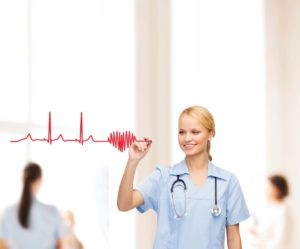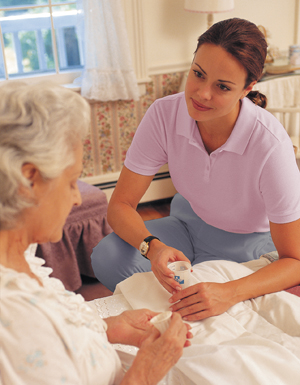
Bioidentical Hormone Therapy
"Bioidentical hormone therapy" for menopausal symptoms can refer to FDA-approved prescription drugs. Or it can refer to custom-compounded hormones made at compounding pharmacies mixed according to a doctor’s instructions.
These may have two or three types of estrogen, often mixed with other hormones. Some doctors claim that compounded bioidentical hormones are safer.
Custom-compounded bioidentical products aren't FDA approved.
Overview
Progesterone
Progesterone is a hormone that occurs naturally in the body. It can also be made in a laboratory.
"Progestin" is a general term for a substance that causes some or all of the biologic effects of progesterone. The term "progestin" is sometimes used to refer to the progesterone made in the laboratory that is in oral contraceptives and hormone replacement therapy.
Women commonly take progesterone to help restart menstrual periods that unexpectedly stopped, treat abnormal uterine bleeding associated with hormonal imbalance, and treat severe symptoms of premenstrual syndrome (PMS).
Progesterone is also used in combination with the hormone estrogen to "oppose estrogen" as part of hormone replacement therapy. If estrogen is given without progesterone, estrogen increases the risk of uterine cancer.
Progesterone cream is used:
- hormone replacement therapy and for
- treating menopausal symptoms such as hot flashes
Progesterone gel is used inside the vagina to treat:
- breast pain in women with non-cancerous breast disease,
- prevent and treat abnormal thickening of the lining of the uterus (endometrial hyperplasia)
- prevent premature labor
Progesterone is also used intravaginally or by injection for treating infertility and symptoms of (PMS).
How does it work?
Progesterone is a hormone released by the ovaries. Changing progesterone levels can contribute to abnormal menstrual periods and menopausal symptoms. Progesterone is also necessary for implantation of the fertilized egg in the uterus and for maintaining pregnancy.
Pregnenolone
The Parent Hormone Affecting Memory, Sleep, Anxiety, and Mood
Pregnenolone is at the top of the hormone cascade, the “parent hormone” from which neurosteroids and sex hormones are formed, and gives rise to important “neurohormones” that effect:
- learning
- memory
- mood
- sleep
- other functions
Pregnenolone may relieve:
- anxiety
- help to fight depression
- reduce symptoms of withdrawal from nicotine and alcohol addiction
People with lower pregnenolone levels are more likely to suffer from:
- memory deficits
- mood disorders
- some mental illnesses
Pregnenolone and other neuroactive steroids can protect brain cells against the long-term damage that can lead to Alzheimer’s disease and other forms of dementia.
Estrogens
Estrogens actually refer to a group of related hormones, each with a unique profile of activity. Under normal circumstances, a woman's circulating estrogen levels fluctuate based on her menstrual cycle.
For Hormone Replacement Therapy, these hormones are often prescribed in combination to re-establish a normal physiologic balance.
The three main estrogens produced in female humans are:
- E1 (Estrone; 10-20% of circulating estrogens) is the primary estrogen produced after menopause.
- E2 (Estradiol; 10-30% of circulating estrogens) is the most potent and major secretory product of the ovary, and the predominant estrogen produced before menopause.
- E3 (60-80% of circulating estrogens)

Stay Healthy
Living a healthy lifestyle is important throughout a woman's life. And it's not too late to start at menopause. Get a checkup that includes measuring your blood pressure, cholesterol, and blood sugar and make appointments for vaccinations and routine screenings such as mammograms and bone density. Menopause is also a great time to upgrade your diet, physical activity, and stress management skills -- your doctor can give you pointers as you work together to plan for healthy menopause.
Active Menopause Is a Must
One of the smartest things a woman can do as she transitions to menopause and afterward is to get regular physical activity. That includes aerobic exercise for her heart and weight-bearing exercise for her bones -- both of which may help ward off weight gain and provide a mood boost. Even if a woman hasn't been very active in her younger years, it's never too late to start. Menopause is a new beginning and the perfect time to weave more activity into your life.
NEED HRT CREAM?
Please Contact Us With Full Details:
